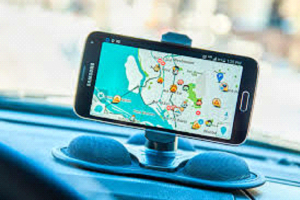Geolocation via the mobile phone! What is its future, and the ways will the new attacks deployed with the arrival of 5G.
Technology may be a boon. We cannot deny it. Sometimes, however, we wish it to be a touch less invasive.
Technology has stolen your privacy.
It’s a secret that the govt knows all about you. Well, almost everything. The Govt uses technology to provide detailed profiles of citizens. Mostly, it keeps track of you.
But did you recognize that Google knows the maximum amount, if no more, than the government? Since you have been using Google, you have been followed.
Your personal information
Your income
Your love situation
Your location
Your complete browsing history
The content of your email
The sound of your voice
Your favorite meal
Your dreams and ambitions
The underwear you wear?!
This is by no means a whole list. We doubt that our partners know half about us.
It just gets worse
How did Google come to the current information?
Smartphones have come a protracted way. Previously, they were simple communication devices. Now they’re potent computers. Globally, this is often a welcome development. However, with each leap in smartphone technology, what Google – et al. – can locate only increases.
The way our society is reflected in modification. Previously, you had to rent private eyes to follow a partner, perhaps misleading. Now people like better to support their partner’s phone instead. Why? Tracking a phone is less complicated and cheap. You’ll even find free solutions to locate a laptop without them knowing it on the net.

Location of mobile phones: 5 forecasts for the longer term
Here are some predictions about the longer term of mobile phone tracking and monitoring:
1. Cross attribution
You may have noticed that the ads are following you online. After you access your email ID, for instance, you see a commercial. After you move to a replacement website, you’ll review the identical ad. This is often called “cross-channel” monitoring. The same announcement or a related advertisement follows you and locates you where you’re going.
The announcement also will follow you within the world. This is often called the “cross-allocation of devices.” Marketers et al. will support you 24/7 – and your transportable will play a crucial role. How? ‘Or’ What?
As you well know, the human ear cannot develop high-frequency sounds. Your phone can emit a particular high-frequency sound after you are reception or outside. Your ears won’t be able to create this sound, but the devices around you’ll. They’ll use music to spot you, track you, send you announcements, and thus record your information.
2. AI-based telephone location
Companies like Majo, Google, Facebook, Amazon and are using Artificial intelligence to produce better services and support to customers.
For example, Google Maps now uses plenty of computer science technology. The app uses AI to produce additional features, like the quickest route to a destination or an outline of the most effective restaurants around you.
However, AI also tracks your daily commute, your habits, your parking spaces, the staff you meet, and far more.
Besides, AI remains a comparatively new technology. Curiously, they’re using AI technology to launch an attack.
3. Downgrading attacks
Imagine that there are two ways to attach to a web site. A method is secure. The opposite isn’t so confident. Usually, your transportable automatically chooses the means of connection to the web site.
If a tool is forced to travel through a less-secure channel, it’s much easier to trace it. Any information it sends or receives will be easily captured. This is often referred to as a decommissioning attack.
Modern websites use advanced security protocols. However, the old way the web site works still exists. Why? For compatibility and other reasons. Within the future, your transportable could also be forced to use old technology to form tracking easier.
4. Location of applications and hardware
You already know the placement software: Google Maps Find my iPhone’s location system from Apple, and Facebook’s geography. These services are reliable whether or not they follow you, right? Perhaps. We don’t know, obviously.
Also, consider this: What if some other person uses these apps to trace you instead? This can be where the longer term is headed. Hackers are setting out to replace legitimate software updates with fake ones. The subsequent time Google Maps is updated, a hacker could also be watching you.
This “diversion” also applies to hardware. Your phone’s hardware is often changed and wont to track you. We expect other phone manufacturers may try the identical within the future.
5. The deployment of 5G
4G networks are susceptible to hacking. Why is that? Simply put, 4G networks are vast and sensitive. There are many entry points through which a hacker can enter inside. However, the 4G situation is principally in check.
Worryingly, we are deploying 5G technology worldwide. With 5G, the entry points available to hackers are even higher. A recent report published by the EU Commission speaks thoroughly.
Hackers don’t seem to be the sole threat.
Once 5G technology is deployed, your public utility, government, your employer, and people closest to you may be able to trace you more closely.
An ultra-fast network allows multiple devices to be traced simultaneously.
Conclusion
While our predictions may sound a touch grim, it is not as immoral because it seems. While threats associated with tracking and privacy are real, users still control their data. Additionally, the govt is rapidly developing new laws to deal with growing threats to privacy, like the California CCPA law.
We would wish to available saying that not everything that happens is terrible. There are many positive applications of technology, like protecting loved ones, providing emergency medical care, and more! However, it’s also essential to grasp the underside of decor and what it contains without the knowledge of the many users.








